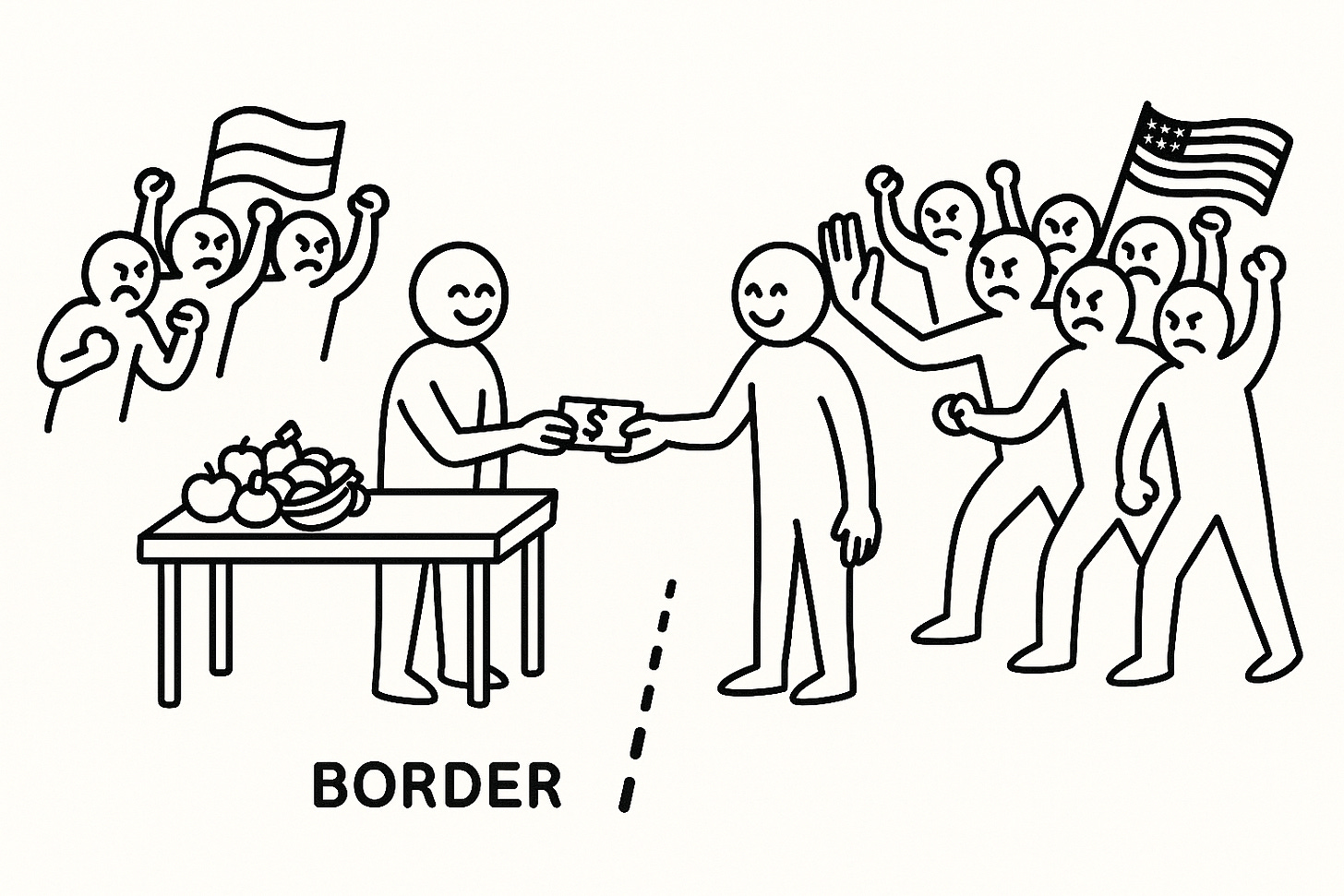Two Different Conceptions of Trade, in One Lesson
Is it collectives and political authorities that trade, or individuals and their middlemen?
There are two fundamentally different ways to think about trade. The distinction applies whether we think of internal or external (international) trade.
One way is to consider that political authorities have, or should have, the last word as to who trades with whom and on which terms. The argument is that some central authority is needed to coordinate actions, including actions of exchange, so that individuals don’t continuously clash with one another. For most of the history of mankind, the political authority was a ruler or an aristocracy. (For our present purposes, we may take a tribe’s elders, priests, or chief warriors as political authorities, even if they themselves submit to stifling traditions and superstitions, as we can see in Rudyard Kipling’s The Man Who Would Be King [1888].) In modern times as well as very occasionally before, the political authority claimed to represent the whole society, that is, the whole collective.
Keep reading with a 7-day free trial
Subscribe to Individual Liberty to keep reading this post and get 7 days of free access to the full post archives.



